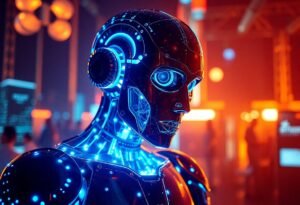Quantum computing represents a significant leap forward in technology, particularly in enhancing machine learning processes. By harnessing the principles of quantum mechanics, these advanced computers can process information in ways that classical computers cannot. This article explores how quantum computers can revolutionize machine learning and drive unprecedented innovation in various fields.
The Intersection of Quantum Computing and Machine Learning
Quantum computing and machine learning are two revolutionary fields that, when combined, can create groundbreaking advancements. The inherent capabilities of quantum computers, such as superposition and entanglement, allow them to perform complex calculations at astonishing speeds. This ability enables machine learning algorithms to analyze vast datasets much more efficiently than traditional computers. Enhancing data processing power is crucial for developing models that require a deep understanding of nuanced patterns, which can lead to better decision-making processes in numerous industries.
Accelerating Data Analysis
One of the most significant advantages of quantum computing is its ability to accelerate data analysis. For instance, when training machine learning models, the requirements for data inputs are immense. Quantum computers can optimize these processes by rapidly evaluating the relationships between multiple variables, thus reducing the time it takes to reach accurate results. This accelerated data analysis can facilitate tasks ranging from real-time data monitoring to predictive analytics, leading to quicker and more informed business decisions.
Enhancing Predictive Models
In machine learning, predictive modeling is essential for forecasting outcomes based on historical data. Quantum computers can enhance these models by allowing for more sophisticated algorithms that can interpret complex datasets. By leveraging quantum computing for predictive analytics, companies can gain insights previously unattainable through standard computational methods. This shift represents a vital innovation in tailoring solutions to specific market needs and improving overall service delivery.
Improving Optimization Techniques
Optimization techniques are pivotal in machine learning for scenario analysis and resource allocation. Quantum computing can solve optimization problems exponentially faster than classical methods. This ability opens new opportunities for industries requiring complex logistical solutions, such as supply chain management and financial modeling. By utilizing quantum optimization, organizations can explore a broader range of solutions and achieve operational excellence through enhanced resource management.
Transforming Healthcare AI Applications
The healthcare sector is poised for dramatic transformation facilitated by the synergy between quantum computing and artificial intelligence. Quantum-enhanced machine learning can improve patient outcomes by analyzing genetic information, medical histories, and treatment responses more effectively. Such innovative approaches can lead to personalized medicine, where treatments are customized to individual patient profiles, significantly increasing the effectiveness of interventions and reducing costs.
The Future of Innovation in Machine Learning
The convergence of quantum computing and machine learning heralds a new era of innovation. As these technologies evolve, we can anticipate novel applications that push the boundaries of what is currently possible. The future holds exciting prospects in areas like smart cities and autonomous systems driven by enhanced learning models. Embracing these advancements will be essential for staying competitive in an increasingly tech-driven world. In conclusion, the integration of quantum computing into machine learning is set to revolutionize how industries innovate and solve complex challenges, paving the way for a smarter future.
Disclaimer: This article is for informational purposes only and should not be construed as professional advice.





















